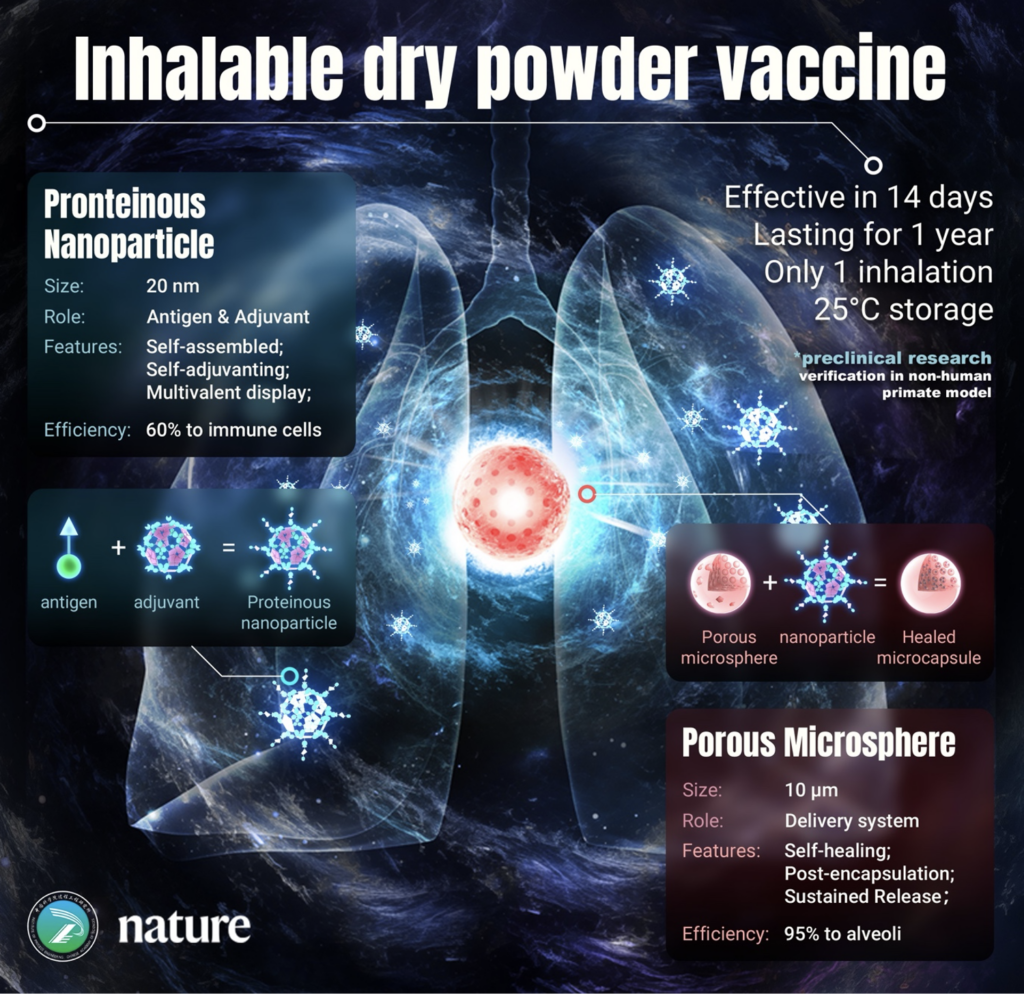http://en.people.cn/n3/2023/1214/c90000-20110387.html
https://www.nature.com/articles/d41586-023-03557-7
Researchers from the CAS Institute of Process Engineering (IPE) have proposed a new “nano-micro composite” delivery concept for vaccines and developed a single-dose, dry-powder, inhalable vaccine platform. The vaccine made in the laboratory based on the technology is effective in blocking respiratory viral infection and transmission in animal test, showing great promise for combating future emerging and epidemic infectious diseases.
In recent years, researchers have made significant progress in developing vaccines for infectious respiratory diseases. However, most of these vaccines are administered through intramuscular injection, which primarily induces a humoral immune response and relies on blood antibodies to neutralize the virus. This approach fails to trigger a mucosal immune response and establish a robust immune barrier in the respiratory tract. The current liquid form of vaccines requires to be stored in strict low-temperature, and the two- or three-dose vaccination schedule also impacts the overall vaccination rate.
In confronting these problems, professor Wei Wei and professor Ma Guanghui from the State Key Laboratory of Biochemical Engineering at IPE, in cross-disciplinary collaboration with professor Wang Hengliang and professor Zhu Li from the State Key Laboratory of Pathogen and Biosecurity, have developed a new vaccine platform. This platform combines biodegradable microspheres with protein nanoparticles. The surface of these nanoparticles can simultaneously display multiple antigens, thus inducing a broad-spectrum immune response and expanding the range of vaccine protection. The platform also allows for the quick and convenient development of other respiratory virus vaccines due to the flexibility of antigen presentation. The platform’s unique nano-micro composite structure enables an efficient immune response in the lungs by facilitating high-performance delivery. Once antigen-nanoparticles are released, they can be efficiently taken up by antigen-presenting cells.
Moreover, this dry powder vaccine significantly reduces storage and transportation costs, making it suitable for areas with limited refrigeration facilities, thus improving immunization rates.
“The components of this nano-micro system used natural proteins and approved polymer materials, and the effectiveness and safety of the vaccine have been systematically studied in non-human primates, indicating its great potential for clinical translation,” professor Wei said.
Developers hope that vaccines that prime immune cells in the mucous membranes that live in the nose and mouth, where SARS-CoV-2 enters the body, will quickly stop the virus from spreading, preventing even mild cases and blocking transmission. More than 100 oral or nasal vaccines are in development globally.


